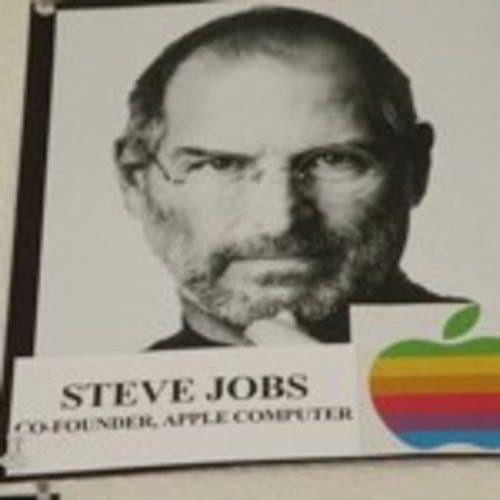
If you haven’t read my colleague Scott Fulton’s post on “The Steve Jobs Formula and Why It Works” go read it right now! It’s a very insightful piece written by an expert who literally watched Apple grow up, and there are plenty of lessons for all entrepreneurs in the Steve Jobs formula he spells out. However, to be “fair and balanced” here at ReadWriteWeb I think it’s also important to point out some things that as an entrepreneur you’d be well served to disregard. What follows are four factors of the Apple formula to ignore. I’d love to hear what you agree and disagree with in the comments below as well as other factors that should have been included.
Read our coverage of the Jobs
resignation here:
Don’t Be Secretive…Go Anti-Stealth
Steve Jobs is notorious for how secretive he is. Every product is built in isolation, and while the details of Apple’s product development process are not that open either from what I’ve heard, often engineers don’t even have a full picture of the product they are building.
A few months ago, returning from SxSW, I wrote about my concerns about the increasing percentage of business I heard that were building “stealth.” As I pointed out in the post, there are three big advantages to building your business in anti-stealth:
- Leveraging product feedback earlier in development
- Building a reputation and community in your target market
- Building relationships with potential investors pre-fundraising
Don’t Expect a Perfect Version 1.0 … Release Early & Often
Related to this first point, there was an expectation when Jobs stood in front of a crowd to unveil a new product that it was going to be truly amazing, groundbreaking, revolutionary and life changing. As an Apple fan, I must admit I do truly find myself feeling that way about my iPhone, iPad and MacBook Pro. However, as Reid Hoffman is famous for saying, the better advice for most entrepreneurs is to be embarrassed by their first product.
Basically, I think this one comes down to the fact that very few teams are as strong as the team that Apple assembles, in terms of understanding what a group of people want and building that with limited feedback. In other words, you are no Steve Jobs or Jonathan Ive and so it’s extremely unlikely you’ll predict as accurately as they what needs to be built. Instead, think about testing your idea before you write your first line of code.
Don’t Start Building in Isolation…Look to Swarm Existing Communities
Apple basically starts with the assumption that it can build a community from scratch instead of swarming an existing one. This works for them in most situations – although I think there are even examples where this hasn’t worked for Apple (Ping).
As an entrepreneur, this is foolish. I had the pleasure to meet Chad Hurley for coffee a few months before he sold YouTube to Google because we had a close mutual friend. One really interesting thing he talked about, which I’ve found myself reflecting on often over the years, is that both PayPal and YouTube were businesses built to swarm existing platforms with unmet needs (payment on eBay for PayPal and videos on MySpace for YouTube).
Now obviously over time as both – but especially the YouTube/MySpace example – show, you may becoming larger then the platform you start with, but it’s very helpful to find an existing large community with a need for what you’re offering to get started.
Don’t Be Closed…Create an API Day 1
Apple products are also notoriously closed. In fact, they are so notoriously closed that Alex Payne wrote:
“The thing that bothers me most about the iPad is this: if I had an iPad rather than a real computer as a kid, I’d never be a programmer today. I’d never have had the ability to run whatever stupid, potentially harmful, hugely educational programs I could download or write. ”
This also doesn’t work for a startup. As venture capitalist Fred Wilson said at Future of Web Apps last year:
“I think it’s important to make your application programmable, and make it possible that others can build on top of or connect to or add value to, in some way, your Web application. That means API’s, and in my opinion read/write API’s…Not all of our companies, by the way, have launch read/write API’s, and we’re constantly hounding them to do that, but the important thing about programmability is that when people can add value to your application, they are in effect adding energy to your application, bringing more users to your application, and also bringing more data and more richness to your applications.”
So as I said at the beginning, I’d love to hear other factors you think entrepreneurs should avoid from the Steve Jobs formula, or things I’ve included you disagree with, in the comments below.

















